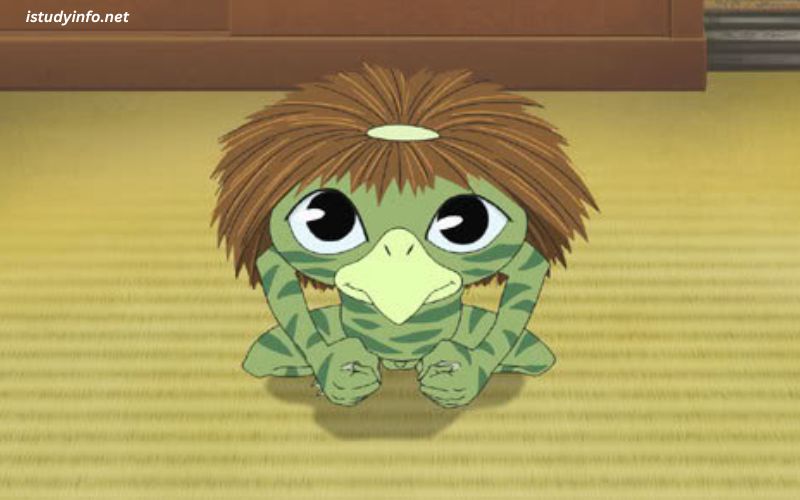In the expansive and vibrant world of anime, numerous symbols, terms, and references enrich the narrative tapestry. One such intriguing term is “Kappa,” which, despite its origins in Japanese folklore, has evolved to find a niche in anime and pop culture. This article explores the origins of Kappa, its relevance in anime, and its broader cultural impact.
Origins and Folklore
The Kappa is a mythical creature from Japanese folklore, recognized as a water imp or spirit. Traditionally, it is depicted as a small, amphibious being with a humanoid shape, a turtle-like shell on its back, and a water-filled dish on top of its head. This dish is said to be the source of the Kappa’s power, and if it were to be emptied, the Kappa would lose its strength and become powerless.
Kappa are often portrayed as mischievous and sometimes malevolent beings. Folklore suggests they inhabit rivers and ponds and are known for causing trouble, such as challenging humans to sumo wrestling matches or even dragging them into the water. Despite their trickster nature, Kappa are also believed to have a code of conduct and can be placated through proper manners or offerings.
Kappa in Anime
In anime, Kappa have made various appearances, reflecting their roots in folklore while also adapting to modern storytelling. Here are some notable examples:
- “Naruto”: In the popular anime series “Naruto,” the Kappa is reimagined as part of the broader collection of mythical creatures. While not a central character, the influence of Kappa can be seen in various jutsu and characters inspired by traditional folklore.
- “InuYasha”: This series incorporates various elements of Japanese mythology, including Kappa. The presence of such creatures helps to enrich the fantastical world of InuYasha, blending folklore with modern fantasy.
- “Kappa Mikey”: A more direct interpretation is found in “Kappa Mikey,” an American animated series inspired by Japanese anime. The series features a Kappa as one of its main characters, highlighting the playful and mischievous aspects of the folklore creature.
Symbolism and Cultural Significance
Kappa are more than just mythical beings; they hold significant symbolism in Japanese culture. Here’s a deeper look at their cultural impact:
- Reflection of Human Nature: Kappa embody the duality of human nature—mischievous yet bound by a sense of honor. This duality reflects the complexities of human behavior and interactions, making Kappa a rich symbol in cultural narratives.
- Folklore and Morality: The tales of Kappa often come with moral lessons. For instance, stories about Kappa dragging people into the water serve as cautionary tales about respecting nature and avoiding reckless behavior.
- Pop Culture Influence: Beyond folklore, Kappa have become symbols in modern pop culture, appearing in various media and merchandise. Their image is used to evoke a sense of nostalgia and connection to traditional Japanese stories.
Kappa in Modern Media
The influence of Kappa extends beyond anime and folklore into modern media and popular culture. In video games, manga, and even international media, Kappa are used to invoke themes of mischief, tradition, and the supernatural.
- Video Games: In games like “Shin Megami Tensei,” Kappa appear as demons or spirits that players can interact with. Their role in these games often mirrors their traditional characteristics, providing players with a taste of Japanese mythology.
- Manga: Manga series occasionally feature Kappa as characters or plot elements, blending traditional folklore with contemporary storytelling. These appearances help to introduce new audiences to Japanese mythology in an engaging way.
- Merchandise and Branding: Kappa-themed merchandise, from plush toys to clothing, reflects their enduring popularity and appeal. This branding leverages the charm and mystique of Kappa to connect with fans of all ages.
Conclusion
The Kappa is a fascinating example of how traditional folklore can be woven into modern media, especially within the anime genre. From its mythological origins as a mischievous water spirit to its reimagining in contemporary anime and pop culture, the Kappa remains a potent symbol of Japan’s rich cultural heritage. Whether as a character in a story or a cultural icon in merchandise, the Kappa continues to captivate and intrigue, bridging the gap between ancient folklore and modern entertainment.
As anime and pop culture continue to evolve, it will be interesting to see how the Kappa is adapted and represented in future narratives. The creature’s ability to blend tradition with modernity speaks to its timeless appeal and the enduring fascination with mythical beings in storytelling.











